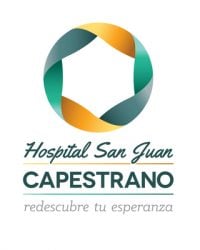JIZA - Persistent Symptomatology
Drug Rehab Center in Arecibo, Puerto Rico
- Mental Health
- Dual Diagnosis
JIZA - Persistent Symptomatology is a premier addiction treatment center in Puerto Rico that offers evidence-based services and resources to help individuals and their families overcome addiction, including individual and group therapy, family counseling and support, medication-assisted treatment, life skills classes, and aftercare planning.
About This Puerto Rico Facility
JIZA - Persistent Symptomatology is a premier addiction treatment center located in Arecibo, Puerto Rico. They specialize in helping individuals and their families who are suffering from addiction and substance abuse through a range of evidence-based services and resources. JIZA's holistic approach to recovery combines psychological, social, and spiritual services in an effort to provide the best possible care and treatment for those affected by addiction.
JIZA - Persistent Symptomatology offers a variety of services, such as individual and group therapy, which can help to identify the underlying causes of addiction and how to manage them. They offer family counseling and support, so that families can better understand the role they can play in the recovery process. JIZA also offers medication-assisted treatment, which helps individuals to manage their cravings and reduce the risk of relapse. Finally, they also provide life skills classes and aftercare planning to help their clients gain the skills and resources necessary for long-term success.
JIZA - Persistent Symptomatology is accredited by the Commission on Accreditation of Rehabilitation Facilities and the Junta de Licencias de Salud Mental in Puerto Rico. They are a STAR-certified provider of substance abuse services, and have earned the Platinum Quality Award from the Institute for Behavioral Health Excellence for quality improvement and patient safety. They also offer specialized programs for participants in Puerto Rico's Medicaid program, and have provided outreach services in 10 different towns across the island.
Genders
Ages
Modality
Additional
Conditions and Issues Treated
When addiction and psychiatric issues co-occur, the addict’s recovery is more successful when both conditions are treated. A dual diagnosis refers to a condition in which the patient is diagnosed with two health issues: addiction and bipolar disorder. The most common therapies are psychotherapy, behavioral therapy, spiritual counseling, 12-step programs, and medication management.
Levels of Care Offered at JIZA - Persistent Symptomatology
This center offers a variety of custom treatment tailored to individual recovery. Currently available are Dual-Diagnosis, Inpatient, with additional therapies available as listed below.
Inpatient treatment centers offer a safe, secure, and often medically supervised environment for drug or alcohol-addicted individuals. Many of these facilities are equipped to provide detoxification, treatment for co-occurring mental health disorders, and aftercare programs. The patient typically spends 28 to 30 days at the facility and will receive extensive drug counseling.
Therapies & Programs
At JIZA - Persistent Symptomatology , to learn from past mistakes and improve one’s situation, the recovering person meets individually with a therapist. The counselor or therapist will address addiction causes, triggers, mental issues, dual diagnosis, and aftercare plans during this time. This is a very intense and challenging process. Some clients find it easier to open up to someone other than family or friends who understand their struggles with addiction.
In group therapy, recovering addicts meet with a therapist and other people in recovery. Some groups are closed, meaning only people who share the same addiction or problem can attend. Others are open to anyone who wants to stop using drugs or drinking alcohol. Group therapy sessions typically focus on one topic each week or month so that recovering addicts can discuss issues they face daily.
Cognitive Behavioral Therapy (CBT) is based on the idea that how we feel, think and act all interact together. It helps people explore their thoughts for problems (or false beliefs) that influence their mood and actions. CBT is very goal-oriented, which means that the therapist and patient work together on a specific problem. In addition to helping a client focus on thoughts that can be changed, CBT also allows them to take an active role in their treatment. Our thoughts determine our feelings and behaviors; our feelings affect our thoughts, and our behaviors change our thoughts and feelings.
Nutrition therapy has been used to help drug addicts for decades. Many early reports on addiction treatment indicate that some patients recovered from the “satisfying power of food”. For years, this phenomenon has been utilized as a treatment modality in eating disorders for adults, adolescents, and children.
Specific nutrients have been identified that influence neurotransmitters associated with reward pathways of the brain. Studies have shown that carbohydrate loading with complex carbohydrates to elevate serotonin levels was effective in treating bulimia nervosa. This approach prompted researchers to explore the use of this type of nutritional intervention in other disorders.
The goal of nicotine replacement therapy is to provide a safe alternative for people trying to quit smoking. It does this by giving small doses of nicotine that help manage cravings while breaking habits associated with cigarettes.
Nicotine Replacement Therapy (NRTC) uses products like skin patches and gum that deliver low-dose nicotine, which prevents cravings in those quitting. This makes it easier for them to make a gradual transition from smoker to non-smoker.
Patient Experience
Experiential Therapy at JIZA - Persistent Symptomatology
Experiential Therapy is a different way of thinking about addiction treatment. It uses physical activities to help work through troubling emotions, memories, and trauma that are sources of psychological issues like addiction.
Experiential Therapy can be an effective option for those who have struggled with past traumas or challenges associated with life decisions such as drug use. The non-traditional approach helps people deal more effectively with these struggles. It also allows them to gain new perspectives on their behavior patterns by recreating experiences in healthy ways rather than continuing old habits that may no longer serve them.
Payment Options Accepted
For specific insurance or payment methods please contact us.
Is your insurance accepted?
Ask an expert, call (888) 674-0062
Additional Details
Specifics, location, and helpful extra information.
Arecibo, Puerto Rico 613 Phone Number(787) 816-4497 Meta DetailsUpdated November 25, 2023
Staff Verified
Patient Reviews
There are no reviews yet. Be the first one to write one.
Arecibo, Puerto Rico Addiction Information
Treatment in Nearby Cities
- Vega Baja, PR (14.6 mi.)
- Humacao, PR (54.9 mi.)
- Cayey, PR (36.1 mi.)
- Aibonito, PR (29.7 mi.)
- Rio Grande, PR (51.1 mi.)
Centers near JIZA - Persistent Symptomatology




The facility name, logo and brand are the property and registered trademarks of JIZA - Persistent Symptomatology, and are being used for identification and informational purposes only. Use of these names, logos and brands shall not imply endorsement. RehabNow.org is not affiliated with or sponsored by JIZA - Persistent Symptomatology.

